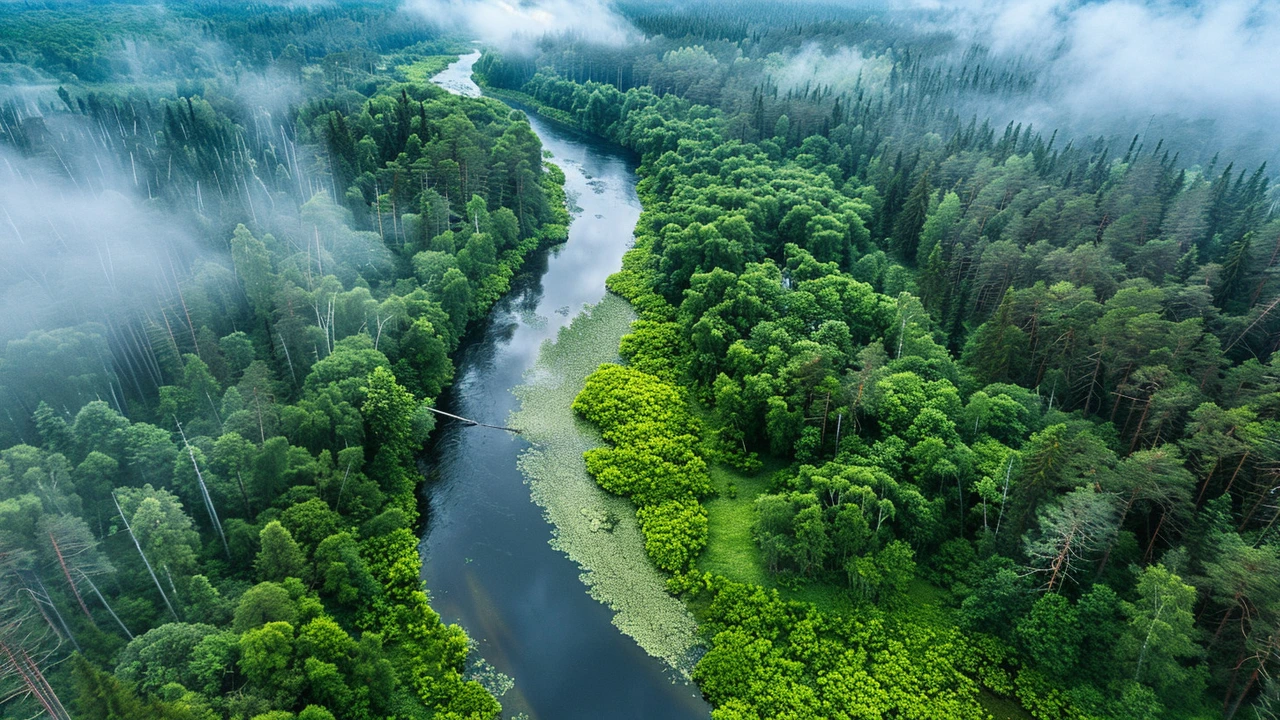UN Decade on Ecosystem Restoration: What It Is and Why You Should Care
The United Nations launched a ten‑year push called the UN Decade on Ecosystem Restoration. Its aim is plain: bring back forests, wetlands, grasslands and other habitats that keep our planet healthy. Restoring ecosystems helps clean air, store water, protect against floods, and pull carbon out of the atmosphere. In short, it’s nature’s own toolbox for fighting climate change and keeping people safe.
Why now? Scientists say we’ve lost about half of Earth’s wild lands in just a few generations. That loss hurts wildlife, reduces food security and makes extreme weather more common. The UN Decade gives governments, businesses and everyday folks a clear roadmap to turn things around before it gets too late.
Key Goals of the Decade
The plan focuses on three big outcomes:
- Restore at least 350 million hectares of degraded land by 2030 – that’s an area bigger than India.
- Boost biodiversity so threatened species have a chance to survive.
- Improve livelihoods for communities that depend on healthy ecosystems, especially in Africa and Asia.
Each goal is linked to the UN’s Sustainable Development Goals. When forests grow back, people get jobs planting trees, tourists enjoy greener landscapes, and farmers see better yields because soil health improves.
How You Can Get Involved
You don’t have to be a policymaker to make a difference. Here are easy ways to join the movement:
- Plant native trees or shrubs in your backyard, school yard or community garden. Native plants need less water and support local wildlife.
- Support NGOs that run large‑scale restoration projects. Even a small donation can fund seedlings or training for local workers.
- Reduce waste. Less litter means healthier soils and waterways, making it easier for nature to bounce back.
- Speak up. Share stories about successful restoration in your area on social media – the more people hear about it, the faster it spreads.
Many African countries are already seeing results. In Kenya, a community‑led forest project has restored 5,000 hectares of degraded land, bringing back wildlife and creating jobs for women who tend seedlings. Similar efforts in South Africa’s fynbos region have reduced fire risk and revived rare plant species.
Businesses are also stepping in. Some coffee companies now pay farmers extra to protect shade trees that host pollinators. Those incentives help keep ecosystems intact while delivering better coffee beans.
The UN Decade on Ecosystem Restoration is more than a slogan – it’s a call to action for anyone who wants cleaner air, safer water and a future where nature and people thrive together. By planting a tree, donating to a project, or simply spreading the word, you become part of a global effort that could reshape our planet for generations.
Ready to start? Look up local restoration groups, pick a small area to improve, and watch how a little effort can spark big change.

World Environment Day 2024: Urgent Call for Global Land Restoration Initiatives
Jun 5, 2024 / 7 Comments
On June 5th, the world marks World Environment Day, bringing attention to the critical need for land restoration. With 40% of Earth's land being degraded impacting half of humanity, it's a crisis linked to food security, water supply, and climate balance. UN's Decade on Ecosystem Restoration aims to drive efforts towards a sustainable and flourishing planet.
READ MORERECENT POSTS
- Harry Kane's brace fuels Bayern Munich's perfect start and pushes them five points clear at the top
- Leeds United U21s Achieve Remarkable Triumph Over Gateshead in Thrilling National League Cup Battle
- Wrexham vs Birmingham City: Streaming Options, Match Details, and Key Players for League One Showdown
- AliExpress Unveils AI Tools and Brand+ Marketing to Win Over U.S. Sellers
- Call for Tinubu to Rename INEC HQ in Honor of Election Hero Nwosu
